The Sons of Great Bear (German: Die Söhne der großen Bärin; literally, The Sons of the Great She-Bear) is a 1966 East German Western film, directed by the Czechoslovak filmmaker Josef Mach and starring the Yugoslav actor Gojko Miti? in the leading role of Tokei-ihto. The script was adapted from the eponymous series of novels by author Liselotte Welskopf-Henrich, and the music composed by Wilhelm Neef. The picture is a revisionist Western, pioneering the genre of the Ostern, and emphases on the positive portrayal of Native Americans, while presenting the Whites as antagonists. It is one of the most successful pictures produced by the DEFA film studio.
| The Sons of Great Bear | |
|---|---|
1966 poster of The Sons of Great Bear | |
| Directed by | Josef Mach |
| Produced by | Hans Mahlich |
| Screenplay by | Margot Beichler Hans-Joachim Wallstein |
| Based on | Die Söhne der großen Bärin series by Liselotte Welskopf-Henrich |
| Starring | Gojko Miti? |
| Music by | Wilhelm Neef |
| Cinematography | Jaroslav Tuzar |
| Edited by | Ilse Peters |
Production company | DEFA Bosna Film Sarajevo |
| Distributed by | Progress Film |
Release date |
|
Running time | 92 minutes |
| Country | German Democratic Republic, Mongolian People's Republic |
| Language | German and Mongolian |
| Box office | 4,800,000 East German Mark (GDR; 1966) |
Screenplay
In 1874, the U.S. government encroaches on the lands of the Lakota people. Mattotaupa, an Oglala Lakota man, gambles with Red Fox, a White criminal, in a saloon. When seeing he has gold, Red Fox demands to know its origin. Mattotaupa refuses, and Red Fox murders him. Mattotaupa's son, the young and fierce warrior Tokei-ihto who mistrusts the Whites and never drinks their "Firewater", witnesses the murder.
Two years later, Tokei-ihto is the war chieftain of the Oglala's Bear Band and one of Crazy Horse's commanders in the Great Sioux War. He raids a resupply column sent to a U.S. Army fort, but brings the commander's daughter Katie Smith to her father unharmed, requesting to negotiate peace. Major Smith turns him down, and one of his officers tries to shoot the chieftain, who then surprises the soldiers and single-handedly destroys their munitions depot.
The warriors return to their camp victorious. Red Fox arrives, offering a peace treaty. Tokei-ihto is sent to negotiate. Smith demands they settle in a reservation. When Tokei-ihto rejects the offer, he is imprisoned. The Bear Band are brutally forced to resettle.
After several months, the war has ended. Red Fox enters Tokei-ihto's cell, trying to force him to reveal the location of the gold mine. Katie Smith and her friend Adams stop him before he begins to torture the captive. They recommend that after being released, he should take his people to Canada. The chieftain accepts the government's terms and returns to the reservation.
Tokei-ihto ventures to the sacred caves of the Great She-Bear, the Band's Totem animal, which are also the gold's source, to seek the blessing of the spirits to their departure. Red Fox's henchman Pitt goes after him, hoping to find gold. He stumbles upon a she-bear which kills him, though not before he fatally wounds her with a gunshot. Tokei-ihto finds the she-bear's cub. He takes it back to the tribe.
The Bear Band leave. They raid an army column, and General George Crook offers a $200 reward on the chieftain's head. Red Fox, still seeking the gold, sets after them with a large group of ruffians. They gain on the Lakota as they cross the Missouri River. Red Fox agrees to let the people move on undisturbed if Tokei-ihto would remain behind. The chieftain agrees. After a prolonged fight, he manages to kill Red Fox. The band settle on the other bank, finding refuge.
- Gojko Miti? as Tokei-ihto (voiced by Karl Sturm)
- Ji?í Vrš?ala as Jim Fred 'Red Fox' Clark (voiced by Fred Düren)
- Hans Finohr as Hawandschita
- Günter Schubert as Feldger
- Hannjo Hasse as Pitt
- Horst Kube as Thomas
- Henry Hübchen as Hapedah
- Adolf Peter Hoffmann as Mattotaupa
- Sepp Klose as T?ašú?ke Witkó
- Franz Bonnet as Crazy Horse the elder
- Kati Székely as Uinonah (Winú?na)
- Rolf Römer as Tobias
- Hans Hardt-Hardtloff as Major Samuel Smith
- Gerhard Rachold as Lieutenant Roach
- Horst Jonischkan as Adams
- Jozef Adamovi? as Chapa (voiced by Klaus Bergatt)
- Blanche Kommerell as Eenah
- Milan Jablonský as Mountain Thunder (voiced by Lothar Schellhorn)
- Helmut Schreiber as Ben
- Rolf Ripperger as Joe
- Brigitte Krause as Jenny
- Karin Beewen as Cate Smith
- Ruth Kommerell as Tashina
- Zofia S?aboszowska as Mongshongsha (voiced by Ursula Mundt)
- Slobodanka Markovi? as Sitopanaki (voiced by Gertrud Adam)
- Jozef Majer?ík as Chetansapa (voiced by Ezard Haußmann)
- Martin ?apák as Shonka (voiced by Horst Manz)
- Walter E. Fuß as Theo
- Jozo Lepeti? as Bill (voiced by Horst Schön)
- Herbert Dirmoser as Old Crow
- Willi Schrade as Tatokano
- Dietmar Richter-Reinick as Lieutenant Warner
Background
The Western genre had never enjoyed the approval of the political establishment in the German Democratic Republic: the novels of Karl May, the most prominent German-language author associated with the topic, were not allowed to be re-published in the country until 1982. The Socialist Unity Party of Germany, the ruling power in East Germany, viewed May as a writer whose supposedly positive portrayal of the colonization of the Old West by the United States ignored the uprooting and genocide of Native Americans while glorifying the White settlers, making him a promoter and a precursor of an expansionist ideology of "blood and soil" and – in the words of Klaus Mann – the "Cowboy mentor of the Führer".
East Germany had its own writers who dealt with the subject, though. The Munich-born Liselotte Welskopf-Henrich composed a first draft of a novel set in the land of the Sioux in 1918, when she was 17 years old. After the end of the Second World War, Henrich joined the Communist Party of Germany and settled in East Berlin, where she held a tenure as a Classics professor in the Humboldt University of Berlin. She finished her book only in 1951. In the following year, it was published under the title The Sons of Great Bear, gaining wide success among children and youth. It became the basis for an eponymous hexalogy of novels about the adventures of Harka, an Oglala Lakota who would eventually be given the name Tokei-ihto. Henrich's books were written from the Native American perspective, and she studied Lakota culture extensively to convey an authentic depiction of them, and even conducted several tours to the United States and Canada to live among their tribes. Until 1996, her books were translated to 18 languages and sold 7.5 million copies worldwide.
Inception
The attitude of the DEFA studio – the country's state-owned cinema monopoly – to Westerns changed in the early 1960s, with the release of a wave of Karl May films produced in West Germany, especially the series directed by Harald Reinl which began with Apache Gold in 1963. While not distributed in the GDR, East German tourists could view them when vacationing in the neighboring Czechoslovakia. The extensive popularity of those pictures convinced DEFA officials to make their own version. Producer Hans Mahlich – one of the veteran members of the studio who participated in the making of some of DEFA's most widely known pictures, like Castles and Cottages and The Sailor's Song – was the first to promote the idea, arguing that such films would become a great commercial success. While seeking to exploit the popularity of the subject, the studio directors had to consider the ideological demands of the establishment, which would have viewed a typical Western as a reactionary and a "bourgeoisie" form of art – indeed, Der Spiegel reported that several years earlier, an attempt to turn Henrich's novels into a film was "vetoed by the party, which negatively deemed the Westerns as a capitalistic influence that would encourage criminality." Therefore, they sought to imbue the planned picture with themes which would suit state officials and turn it into "politically correct entertainment": Henrich's novels, with their emphasis on the negative portrayal of the white colonists and their already established popularity with the audience, were selected to be adapted to the screen. Studio dramaturgue Günter Karl wrote: "We knew we had to set ourselves apart from the capitalist movies of the genre... But we were nevertheless forced to use at least part of the elements that make this genre so effective." Lieselotte Welskopf-Henrich told an interviewer that "in their themes, the West German Karl May films lag far behind good American pictures in which the Native American and his right to self-defense were already recognized. We attempted to make a new sort of an 'Indian film'."
Development
While the studio accepted the idea of making a Western, most of its filmmakers regarded it with skepticism, and did not believe it would garner success. When Mahlich sought a director for his upcoming production, no East German agreed to participate, as none was ready to risk his reputation. He had to enlist the Czechoslovak director Josef Mach, and his fellow countryman Jaroslav Tuzar as cinematographer. In a trait that would characterize all of DEFA's Westerns, while The Sons of Great Bear was an East German work, the production team was multinational, with citizens of several other Eastern Bloc countries. In early 1965, Mahlich traveled to the Socialist Federal Republic of Yugoslavia in order to arrange filming locations and to seek actors. Shortly before leaving back to the GDR, he stumbled upon a film publicity photograph which featured Gojko Miti?. Miti?, a student of the Sport and Physical Education Faculty in the University of Belgrade, worked as a stuntman and an extra in several Westerns produced in his country, beginning with the 1963 Old Shatterhand. He was finally given a minor role of his own in Among Vultures. Mahlich immediately resolved to have him star in the role of Tokei-ihto. As Miti? did not master German, he was dubbed by Karl Sturm. GDR-based Czechoslovak actor Ji?í Vrš?ala, who was mainly known as children's star Clown Ferdinand, was given the role of chief villain Red Fox. The young Henry Hübchen depicted a Lakota man in one of his earliest appearances on screen. Tokei-ihto's sister Uinonah was depicted by New York-born Kati Székely, whose father, Hungarian screenwriter János 'Hans' Székely – who won the Academy Award for Best Story in 1940 for co-writing the script of Arise, My Love – left the United States during the McCarthy era. A central feature of the production was the striving for authenticity and the resolve to reverse the genre conventions by stressing the Native American perspective: The film "shifted the focus to natives solely as victims and Americans as perpetrators". Theodore C. Van Alst, who studied the depiction of Native Americans in European film, noted that as it was made "many miles from the Great Plains... Many years after the events" The Sons of Great Bear "was bound to contain some inaccuracies, but they aren't from a lack of effort". However, while carefully recreating the lives of the Lakota, there are several mistakes in regards to the other side: for example, Major Samuel Smith clearly wears the rank of a colonel; a regimental flag in his headquarters carries the inscription "United States of Amerika", and a map shows the U.S.-Mexican Border as it was before the Treaty of Guadalupe Hidalgo, with Mexico stretching all the way to Oregon. Henrich, who served as the producers' adviser, was "fanatic about details": when several horses refused to be mounted without a saddle and had to be fitted with one, she resigned her post, insisting that Native Americans rode bareback. The author later demanded that her name be removed from the credits, though it remained there. She refused to allow any more of her books to be adapted for the screen after The Sons of Great Bear, insisting "too many liberties were taken".
Principal photography for The Sons of Great Bear was conducted in summer 1965, and took place in the Socialist Republic of Montenegro and in the Elbe Sandstone Mountains. It took about two and half months, and the sum expended on making the picture was "over 2 million East German Marks".
Distribution
The Sons of Great Bear turned into an instant success upon its release, owing also to two external factors: the first was its appeal to young audiences, as many East German children were already acquainted with Henrich's books; and another was the low supply of new pictures for 1966: over half of DEFA's productions intended to be released during the year – 12 out of 21, most prominently Kurt Maetzig's The Rabbit Is Me and Frank
Watch movie The Sons Of Great Bear online on Amazon
Watch movie The Sons Of Great Bear online
Watch The Movie On PrimeSaggai (1966) Full HD Movie Download
.jpg)
Baat Ban Jaye Full HD Movie Download

Tadipaar Full HD Movie Download
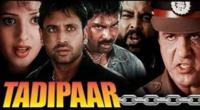
Vinashak-Destroyer Full HD Movie Download
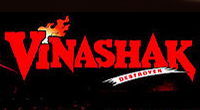
Tees Maar Khan Full HD Movie Download

Aagey Se Right Full HD Movie Download

Deewangee (2002) Full HD Movie Download
.jpg)
Jaan Hatheli Pe Full HD Movie Download
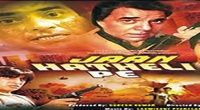
I Hate Luv Storys Full HD Movie Download

Gaalipata Full HD Movie Download
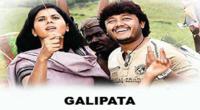
Haage Summane Full HD Movie Download

Bondhu (Bengali) Full HD Movie Download
.jpg)
Akhari Kshanam Full HD Movie Download
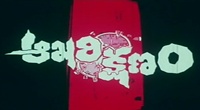
Addhuri: Achhu-Rachchu Love Story Full HD Movie Download

Muduru Full HD Movie Download
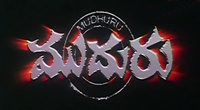
He is Just Not That Into You Full HD Movie Download

Jagame Maya Full HD Movie Download
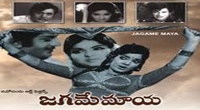
10th Class Full HD Movie Download
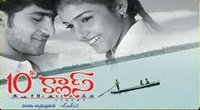
Samurai Full HD Movie Download

Maro Seetha Katha Full HD Movie Download
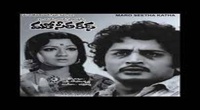
Mujhse Dosti Karoge Full HD Movie Download

Download latest Movie from bollywood
- 1> baaghi 3
- 2> THE SKY IS PINK MOVIE FULL STORY AND REVIEW
- 3> Luka Chuppi
- 4> TO ALL THE BOYS I’VE LOVED BEFORE
- 5> Kabir Singh
- 6> Street Dancer 3D
- 7> Simmba
- 8> Gone Girl
- 9> The Girl Who Lived
- 10> Ludo
- 11> DILWALE DULHANIA LE JAYENGE
- 12> GUILTY
- 13> The Godfather
- 14> Adventures of Rusty
- 15> Sooryavanshi
- 16> Satyameva Jayate 2
- 17> Thappad
- 18> Bhool Bhulaiyaa 2
- 19> KGFChapter 2
- 20> Mardaani 2
- 21> Pinjar
- 22> Shivaji maharaj
- 23> Ek Villian 2
- 24> Hungama 2
- 25> Divergent
- 26> Mumbai Saga
- 27> The Internship
- 28> HIT (telugu)
- 29> Panga
- 30> The perfect date
- 31> 16 December
- 32> Gopala Gopala (Telugu)
- 33> Brahmastra
- 34> Gangubai Kathiawadi
- 35> Manmadhudu
- 36> Nenu local
- 37> Mahanati
- 38> Shatamanam bavathi
- 39> Lagaan
- 40> After
- 41> MOM
- 42> Shamshera
- 43> Raguvaran BTech
- 44> Khakee
- 45> The villain
- 46> OM
- 47> Mr. perfect
- 48> Bueatifull mind
- 49> Hichki
- 50> Gabbar Singh
- 51> Jogi
- 52> Before Sunrise
- 53> Before Sunset
- 54> Before Midnight
- 55> The Big Bull
- 56> Top Gun: Maverick
- 57> The Purge
- 58> The Sky is Pink
- 59> Laxmmi Bomb
- 60> Sadak 2
- 61> Sufna
- 62> Prithviraj
- 63> PK
- 64> Coolie No 1(2020)
- 65> Black Widow
- 66> Dear Zindagi
- 67> Dil Bechara
- 68> PHIR HERA PHERI
- 69> WAR
- 70> Dostana
- 71> RRR: Roudram Ranam Rudhiram
- 72> Maidan
- 73> Dabbang 3
- 74> Chhalaang
- 75> life as we know it
- 76> SherShaah
- 77> Sandeep Aur Pinky Faraar
- 78> Event Horizon
- 79> 83
- 80> Radhe: Your Most Wanted Bhai
- 81> Gunjan Saxena: The Kargil Girl
- 82> Mr India
- 83> Vivah
- 84> Anokha Bandhan
- 85> Ghost
- 86> Bhoot: Part One - The Haunted Ship
- 87> Haseen Dilruba
- 88> Laal Singh Chaddha
- 89> Qismat
- 90> Rajput
- 91> Drive
- 92> Dil Chahta Hai
- 93> Dil Ki Baazi
- 94> Dil Ka Rishta
- 95> Teesri Manzil
- 96> Dil
- 97> Love Aaj Kal
- 98> Khaali Peeli
- 99> Bunty Aur Babli 2
- 100> Atrangi Re
- 101> Gulabo Sitabo
- 102> Jodi
- 103> Suraj Pe Mangal Bhari
- 104> Deewana
- 105> Attack
- 106> Sardar Udham Singh
- 107> Toofan
- 108> THE LOVEBIRDS
- 109> Jersey
- 110> Ginny Weds Sunny
- 111> Thalaivi
- 112> Shiddat
- 113> Angels vs Zombies
- 114> Koi Mil Gya
- 115> Thank God
- 116> Bhuj: The Pride of India
- 117> Hum Aapke Hain Kaun
- 118> The Platform
- 119> Bird Box
- 120> Roohi Afzana
- 121> Torbaaz
- 122> Nikamma
- 123> World War Z
- 124> Extraction
- 125> Train to Busan
- 126> Life of Pi
- 127> SHAADI MEIN JROOR AANA
- 128> Himmat Aur Mehnat
- 129> To All The Boys: P.S. I Still Love You
- 130> Mimi
- 131> Good Newwz
- 132> Shubh Mangal Zyada Saavdhan
- 133> Raabta
- 134> Harry Potter and the Philosopher's Stone
- 135> Harry Potter and the Chamber of Secrets
- 136> Chhapaak
- 137> War of the Worlds
- 138> Harry Potter and the Prisoner of Azkaban
- 139> Harry Potter and the Goblet of Fire
- 140> MURDER MYSTERY
- 141> Shakuntala Devi
- 142> Bachchan Pandey
- 143> Jayeshbhai Jordar
- 144> Sheer Qorma
- 145> Saina
- 146> 'O' Pushpa I hate tears
- 147> Kedarnath
- 148> MS Dhoni The Untold Story
- 149> Chhichhore
- 150> Badhaai Ho
- 151> Unstoppable
- 152> Oz the Great And Powerful
- 153> The Girl on the Train
- 154> Haathi Mere Saathi 2020
- 155> The Conjuring: The Devil Made Me Do It
- 156> Gandhi Se Pehle Gandhi
- 157> The Song of Scorpions
- 158> Srimanthudu
- 159> Hello Guru Prema Kosame
- 160> Beauty and The Beast
- 161> Black Panther
- 162> Charlie and the Chocolate Factory
- 163> Bole Chudiyan
- 164> Fidaa
- 165> Duvvada Jagannadham
- 166> Bruce Lee: The Fighter
- 167> Hyper
- 168> Yaara
- 169> Red (2020)
- 170> Shivam
- 171> That Is Mahalakshmi
- 172> Nishabdham
- 173> Aashram 2020 web series
- 174> Laxmii
- 175> Mismatched
- 176> STUDENT OF THE YEAR 2
- 177> NAIL POLISH
- 178> Ramprasad Ki Tehrvi
- 179> KAAGAZ
- 180> 12 o Clock
- 181> The Power
- 182> bolo hau
- 183> Tribhanga
- 184> JAMUN
- 185> Madam Chief Minister
- 186> Maasaab
- 187> Aadhaar
- 188> Tanhaji
- 189> Bhaagi 3
- 190> Bhootnath
- 191> MALANG
- 192> Jai Mummy Di
- 193> Haathi Mere Saathi 2021
- 194> Shakeela
- 195> Unpaused
- 196> Annayya
- 197> Vamsoddharakudu
- 198> Mrugaraju
- 199> Narasimha Naidu
- 200> Sankranti
- 201> Manasu Maata Vinadhu
- 202> Anjaane
- 203> Apaharan
- 204> Bachke Rehna Re Baba
- 205> Bewafaa
- 206> Roohi
- 207> Radhe
- 208> Zindagi Khoobsoorat Hai
- 209> Yeh Mohabbat Hai
- 210> Yeh Kya Ho Raha Hai?
- 211> The Tomorrow War
- 212> DehradunDiary
- 213> Meri Shaadi Karaoo
- 214> Matruu Ki Bijlee Ka Mandola
- 215> No One Killed Jesica
- 216> Aag Ka Goola
- 217> Eight Million Dollars
- 218> Three Hundred
- 219> Cats and Dog
- 220> Decoy
- 221> Gold Rush
- 222> You Have Got Mail
- 223> Final Destination three
- 224> Tofan
- 225> Jungle
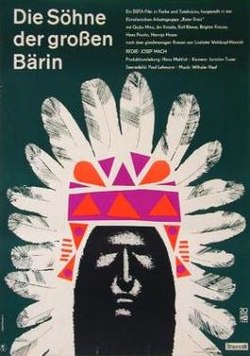 Story of movie The Sons Of Great Bear :
Story of movie The Sons Of Great Bear : 